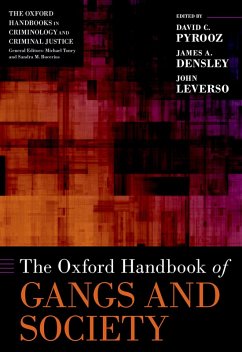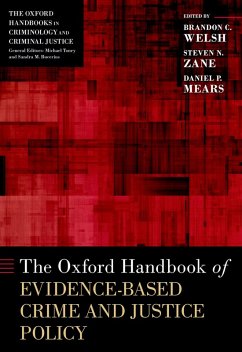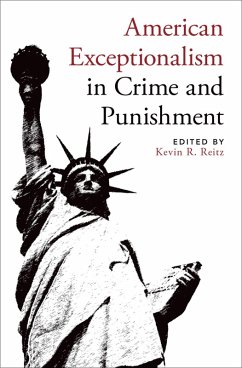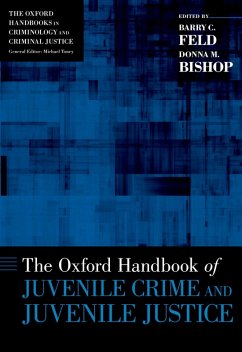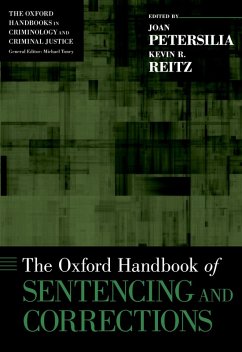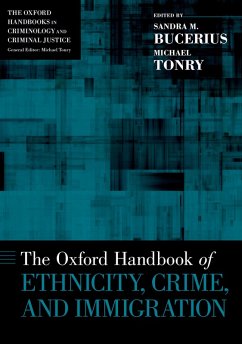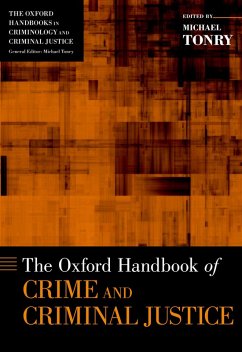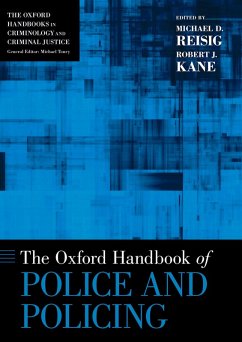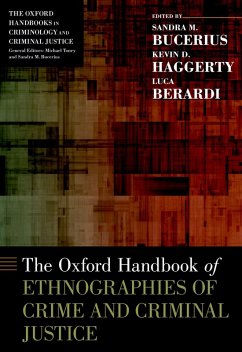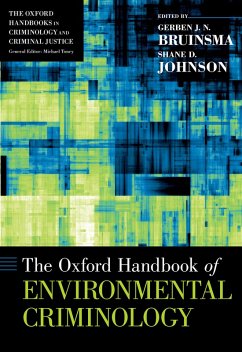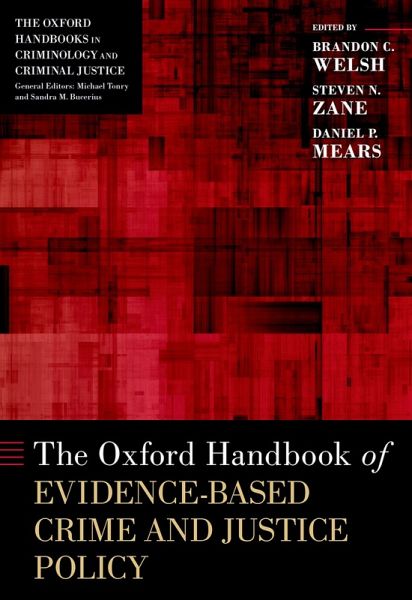
The Oxford Handbook of Evidence-Based Crime and Justice Policy (eBook, PDF)
Versandkostenfrei!
Sofort per Download lieferbar
79,95 €
inkl. MwSt.
Weitere Ausgaben:

PAYBACK Punkte
40 °P sammeln!
The need for and the threats to improved public policy are equally acute. Crime policy agenda continues to be driven by anecdotal evidence and political ideology, resulting in a patchwork of programs, policies, and practices. All-too-frequently, the need for them is uncertain, they rest on unclear theoretical foundations, they are implemented poorly, and their effectiveness in preventing or controlling crime, or furthering justice, is unknown. Putting research evidence at center-stage in political and policy decisions can go a long way to addressing this state of affairs by ensuring that the b...
The need for and the threats to improved public policy are equally acute. Crime policy agenda continues to be driven by anecdotal evidence and political ideology, resulting in a patchwork of programs, policies, and practices. All-too-frequently, the need for them is uncertain, they rest on unclear theoretical foundations, they are implemented poorly, and their effectiveness in preventing or controlling crime, or furthering justice, is unknown. Putting research evidence at center-stage in political and policy decisions can go a long way to addressing this state of affairs by ensuring that the best available data informs decisions that affect the public good. Situated within this wider context, The Oxford Handbook of Evidence-Based Crime and Justice Policy showcases much of what is right with evidence-based crime and justice policy as well as confronts the challenges that it faces today and looking forward. Bringing together leading scholars and researchers in criminology, criminal justice, sociology, psychology, education, health, and the law, this handbook promotes new and productive ways to think about evidence-based policy, shows how research can contribute to and guide evidence-based policy in juvenile justice, criminal justice, and alternatives to system responses, and identifies strategies that can increase reliance on evidence-based policy. It is the most authoritative and scholarly source on research and experience on evidence-based policy as it applies to crime and justice in the United States and across the Western world.
Dieser Download kann aus rechtlichen Gründen nur mit Rechnungsadresse in A, B, BG, CY, CZ, D, DK, EW, E, FIN, F, GR, HR, H, IRL, I, LT, L, LR, M, NL, PL, P, R, S, SLO, SK ausgeliefert werden.



